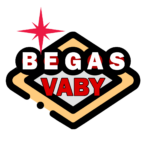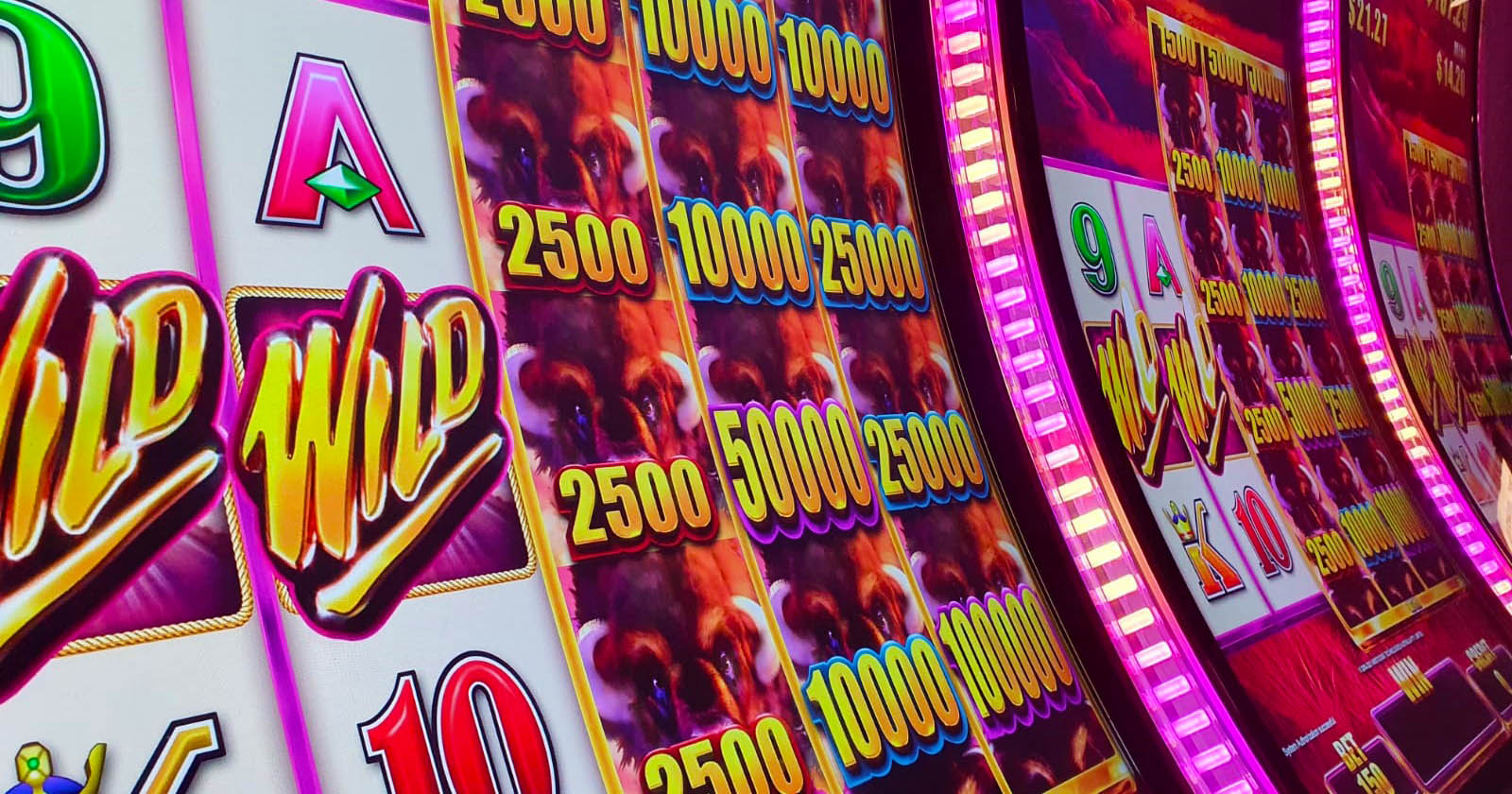Anyone who has gambled in Las Vegas will know that slots can be great fun, but also a source of great frustration.
There is a real air of mystery about them, and so that sense of frustration can often fuel a lot of myths and misconceptions, at best, and downright conspiracy theories at worst.
We are regularly asked about what tricks can be used to carve out an advantage for yourself whilst playing slots in Las Vegas, or what potential pitfalls to avoid.
To answer those questions, we have decided to go to the man who literally wrote the book on slots. Joshua O’Connell of Know Your Slots is a veritable expert who also co-authored Mr. Big Talks Slots: A Beginner’s Guide, which you can pick up on Amazon.
So, let’s learn about slots…
Begas Vaby: If you play on slots for 3 hours one day, and 20 minutes the next day does this affect your overall player ‘rating’ to the casino? In other words is it better to just use your card when you plan on staking a lot or playing a long session than every time you jump on a machine for a quick spin?
Josh: Each day you play at a casino, or swipe your card for anything (whether a restaurant discount, kiosk game or free parking) will initiate a gaming day on property. Playing less on a day will therefore impact your rating.
There is definitely a point where if you’re not going to play much or at all, it can make sense to not use your card and therefore trigger a gaming day. Last month I had to exchange a shirt given to me as a gift; the only place in my state that had this particular store was one of my local casinos.
My partner and I decided we wanted to go, exchange the shirt, get dinner and perhaps do a bit more shopping. No gambling was going to take place so I did not use my card on property and basically stayed invisible.

In other cases I’ve noodled on a slot with low bets before a concert. I knew I wasn’t going to play much ($20 or whatnot) so I didn’t use my card.
So while it’s generally advisable to use your card, there are scenarios where it might make sense to avoid it on a given day.
Thinking about longer trips, if you’re going to be staying at a property for more than one day, your card is likely linked to your room (especially in the case where you’re using it to get no resort fees such as with Caesars or MGM Rewards), so in cases like that play with your card at all times. Otherwise you’ll get a day of no play when you actually played, because the casino already knows you’re there. At that point, it’s best to put all your play on the board since all those days are counting either way.
Begas Vaby: Is your ‘rating’ or ‘value’ to a casino based on money in, or time spent playing?
Josh: Both matter to the formula. Imagine two players:
• Player A makes a $500 wager on Roulette on Black. There’s two outcomes – a $500 win or a $500 loss. The player walks away after that one wager.
• Player B makes 50 x $10 wagers on Roulette on Black. There’s now 50 rounds of the two outcomes, each with either a $10 win or a $10 loss.
Both played the same game, both wagered the same amount, both are, mathematically, expected to lose the same amount. But Player A only gave the casino one chance to win, whereas Player B gave the casino 50 chances.

The odds that Player B will win all 50 or lose all 50 is miniscule – that’d be like flipping a coin and landing on heads 50 times in a row. It’ll likely come out somewhere near the middle, 25 or so, but a good run or bad run could nudge it one way or the other. There’s also a house edge on Roulette introduced by the green spaces so a couple of 0 or 00 (or, ugh, 000) will lower the number of wins a bit in the casino’s favour.
Sometimes hosts will tell players they need to play for 3-4 hours to have their best chances at offers or comps. The reason is that the more wagers you make, the more chances the casino has to win money. A slot player could do 400-600 spins in a single hour – if you bet just $1 a spin, that would be something like $2000 in four hours of play you wagered, and an expected loss of a couple hundred dollars.
So money spent matters, time spent playing matters to get that number of wagers up. The final thing that matters is what you’re playing. Playing Blackjack with a 99% and up payback, for example, vs. playing penny slots with a 90% payback will yield very different calculations for comps and other offers.
Begas Vaby: Do big balls attract big balls? (ahem)
Josh: There’s a lot of games out there, so I’m going to focus my comments for this on Lightning Link. And if you have played enough or watched enough of the game out there, it does seem to have a scenario where once in awhile the prizes are distributed towards the larger, instead of a lot of 1-5x prizes.
That does look like an intentional part of the game’s design, and probably contributes to its allure. Instead of a 25-50x bonus you could break through 100x and beyond with the right prizes, and so while they don’t come out often, it does appear to be part of how that game is set up, along with its siblings like Dragon Link.
RELATED READING: Las Vegas myths and misconceptions – and why to ignore them
Begas Vaby: Are you just as likely to win a Major on one dollar spins as ten dollar spins?
Josh: The chances of winning a Major are generally proportional to the bet. So if you’re betting $10, you have 10x better odds than a $1 bet. This of course makes sense – a $500 major is a 500x win on a $1 bet, but only a 50x win for a $10 bet.
Begas Vaby: Does a maxed out major mean it’s more likely to drop?
Josh: Building on the answer to the last question, the chances it’s more likely to drop is dependent on bet, not the amount of the Major progressive itself.
I myself have seen examples where a Lightning Link $1,000 major is won, only for another $1,000 major to appear behind it – the game keeps accruing towards future majors when the Major maxes out, so it just shows you it can take a while. But then I’ve seen plenty of $500-something majors won as well, which indicates a couple of wins relatively close together.

Given that the odds of it dropping are the same, if you’re going to play a game in a bank of machines, pick the largest one – if you’re going to win one, why not win the largest one! This is a smart tactic for any game with progressives, really.
Begas Vaby: Does a fat pig/big plant/full pot make a difference to when the machine will pay out?
Josh: Those various illustrations, called accumulators, are a visualization of what’s happened since the last bonus has been reached, and not an indication that one is due or likely to hit. In fact, the games nowadays tuck that information into the pay table to be absolutely explicit about things. It’s certainly been shown that people chase pots/plants/fireworks/bags etc. despite that being explicitly declared, so we know why they do it, but it’s not giving you any helpful information.
Begas Vaby: If a machine has just paid out big, is it more likely to pay big again (hot machine) or less likely?
Josh: The chances of it paying big are exactly the same on every spin. The entire purpose of the RNG is to make every outcome possible on any spin of the slot, which is what the rules require for a game to be approved to put on the casino floor. A slot can handpay on back to back spins – it’s not hugely likely, but it’s possible.
The game is going to reach or approach its intended payback over hundreds of thousands or millions of spins, so casinos can be patient and let the machines do its work – no need to suppress pays if the game has paid out lately. Mathematically, it’ll get there, and so your chances of winning, even after a big win, is the same.
RELATED READING: Top Las Vegas tips for first-time visitors and beginners
Begas Vaby: Does playing with a players card have any effect on quantity or quality of wins? Some believe they win more when not playing with their players card in the machine.
Josh: This is one of those things that always bum me out because not playing with a players card is costly. Players cards allow the casino to track your play, learn what type of player you are, and send out offers based on that.
So it’s a trade-off – you give them data, and they give you offers, which often times are anywhere from 20 to 40 percent of the amount they expect you to spend, based on your previous play history.
Players card systems are separate from the slots. There’s dozens and dozens of them, and are installed separately by the slot manufacturers based on what each casino uses. The slots and their payback operate successfully without a card system because they have to – think about Harry Reid Airport and how there’s card slots but no card systems installed.
The card systems can’t configure the slots. They mostly can only read data, with the exception of something like putting your free slot play on the machine. As such, players cards have no impact on your payback – the slot doesn’t care if a card is in or not, or who’s card is in – it has no impact on the payouts.
Begas Vaby: How do so many people seem to win on the last day of their vacation? Is this information logged on their card? Can it have any impact?
Josh: Timing will not impact your wins. I think a lot of people remember wins at the end because it’s at the end, as opposed to a big win buried on day 4 of 7 or something like that when you’ve got a lot going on before and after.
Many times we remember specific things because it confirms a suspicion or a hypothesis we have (confirmation bias).
Speaking personally, I’ve had a few Vegas trips where I did really well until the very last day, and then got eaten alive. But again, those are just our individual personal experiences. Most players in a place like Vegas don’t play at one casino, or even one company’s casinos – they tend to bounce around, shift hotels, etc. So they’re playing on different cards and so on.
So no, it’s probably just a coincidence.
Begas Vaby: Does playing at different denominations improve your chances of winning or the size of the wins?
Josh: Jumping around denominations isn’t going to do much. Over time, playing higher denominations should yield a better overall result because casinos tend to offer a higher payback percentage as you move up in denomination. Each step might be small – 1 percent, more or less – but that adds up over time.
Does putting a bigger amount in the slot to start with increase your chances of winning? e.g playing with $200 in instead of $20
Josh: The slot doesn’t care how much is in the machine – the payback is selected by the casino long before you put your money in the machine.

On tougher games, though, it helps to have enough chances to win something and riding out long droughts of dead spins where nothing is happening. So if you’re going to play $20 and doing $5 a spin, you have four tries to get a bonus or a line hit. But at $1 a spin, you now have 20 chances, and that certainly improves the odds you can actually reach a bonus before running out of money.
So it’s a combination of how much you put in and how much you’re betting. On many modern games, $20 can be eaten up quickly without much happening, just because of the way the games are designed to pay out bigger pays, but less often.
RELATED READING: Quick start guide to hitting the casino in Las Vegas
Is there more chance of winning on max bet?
Josh: Generally speaking, the answer is no. However, there are games that reward players max betting, which can lead to better payouts over time. A few examples:
• You can’t win Quick Hit progressives unless you’re max betting on the game. That does mean you have a slightly higher payback when betting the max. Similarly, any other games that put you out of reach of a progressive without betting a minimum amount ($3 for Megabucks, for example) would be the same – you need to bet what makes you eligible
• A few games, like More More Chilli/Hearts, increase certain line pays at a higher bet, so you are in essence getting paid better when those line hits happen.
• There are some games that give you more/better bonuses for betting higher. Some of these are obvious (recent games in the Wonka, Oz, 007 series are examples). Others have bets that increase more than needed to bump up the line bet, such as Dancing Drums Prosperity, where it goes from 88 to 188 (more than double). Generally that extra bet gives them more money to offer more features or more in the bonus.

But in many of those cases, your chances of winning are the same, you’re just winning more when certain outcomes are achieved. In the case of the more/better bonuses, you are likely winning more, but you’re also betting more, and the overall payback is in the same ballpark or identical.
So ultimately, best to ensure you’re betting enough to qualify for all the prizes available, which in some games’ case is a max bet, but on many it’s not.
Begas Vaby: Does putting money in a slot give you a better chance of winning over putting a TITO in?
A slot machine does not differentiate between cash vs. ticket, or cash vs. free play or that matter. The payback setting options isn’t broken out by anything but something like denomination, so presuming you’re hitting the same bet option, the payback over time will be identical whether it’s cash, ticket, free play, or any other options that might be out there.
A massive thanks to Josh for taking the time to speak to us. If you want to know more about all things slots, be sure to check out his brilliant blog, Know Your Slots, and follow him on Twitter.


